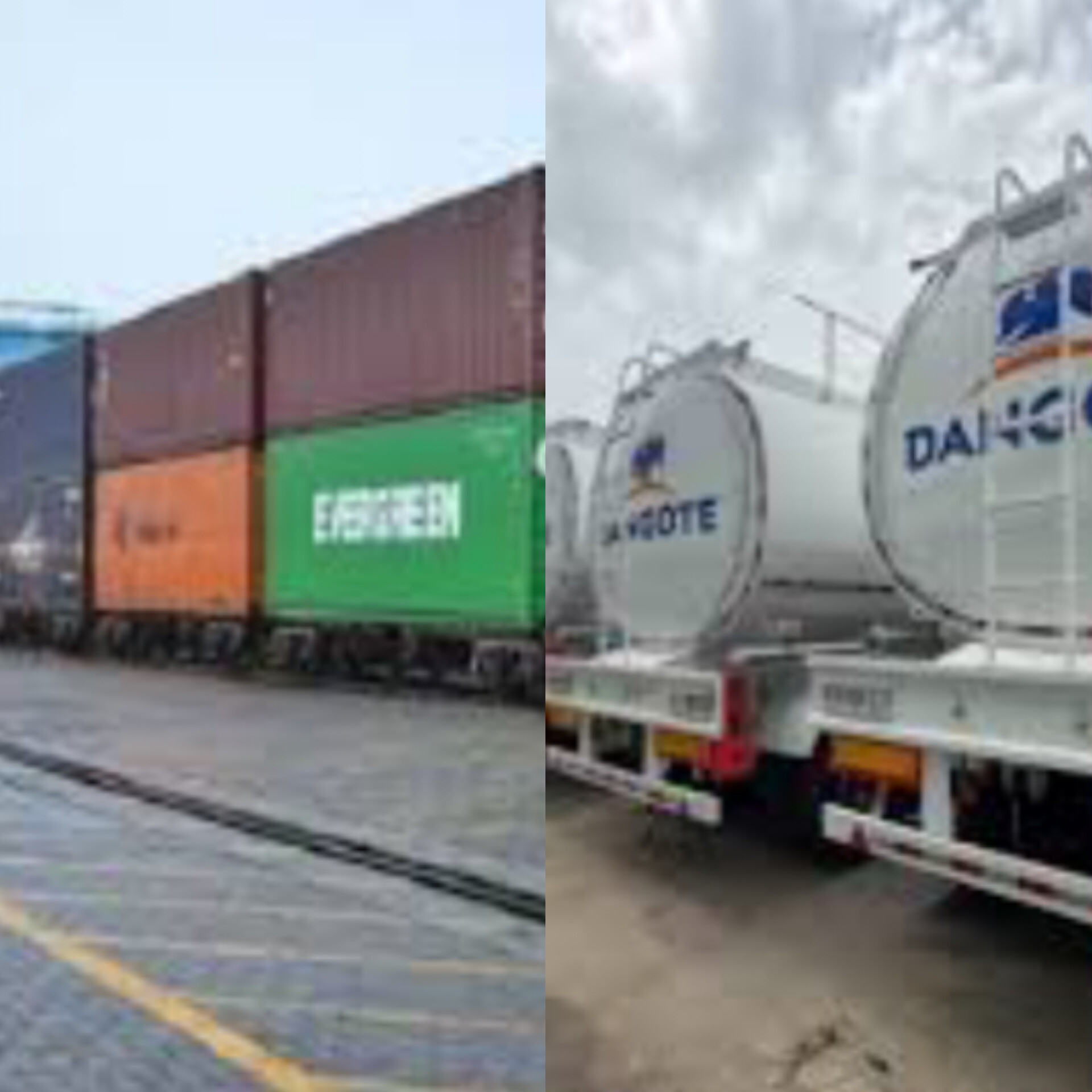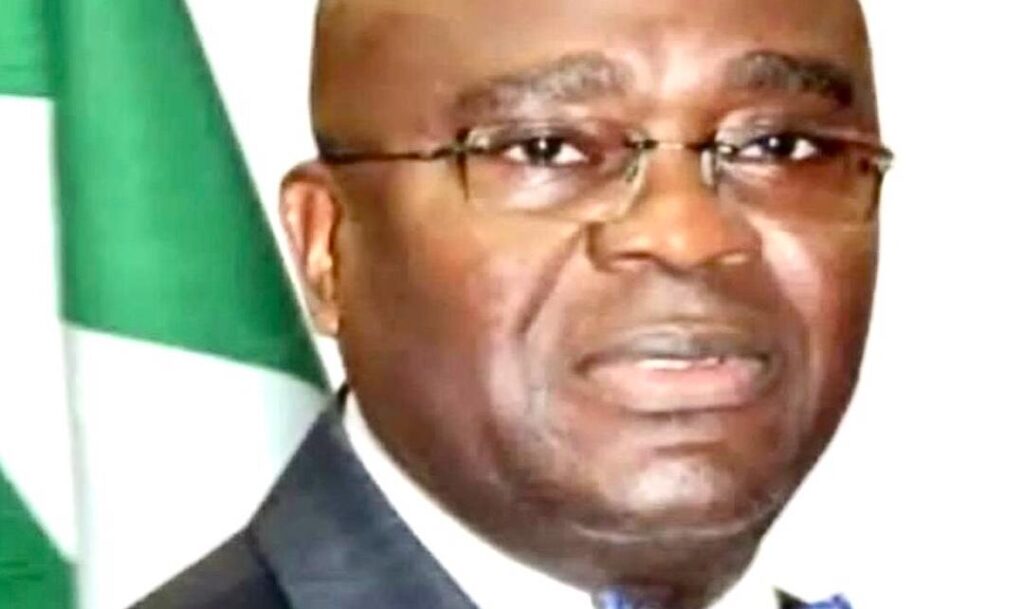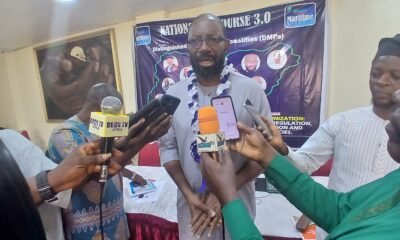Transport
The Tracks We Abandoned: A Call to Revive Nigeria’s Railway Lifeline

In the early 2000s, Nigeria quietly watched its once-proud railway system crumble into irrelevance. The Nigerian Railway Corporation (NRC), once a symbol of national connectivity and economic promise, was left to rot—its tracks stolen, its stations repurposed, and its engines silenced.

Senate President, Godswill Akpabio
In its place rose a new titan of transport, the trucking empire led by Dangote and mirrored by countless others. But what seemed like progress has become a perilous detour. With the seeming intractable rise in road accidents occasioned by the industrial behemoths plying the nation’s highway 24/7, Eguono Odjegba in this report undertakes a tour on the developments; and raises the poser to bring back the Nigerian Railway, complete with bits efficacy.
The Rise of the Trucking Juggernaut
The explosion of trailer and truck fleets, especially those tied to industrial giants, was hailed as a solution to Nigeria’s logistical woes. But the cost has been staggering, top of which is road degradation. Nigeria’s highways, never designed for the weight and frequency of these trucks, are crumbling under the pressure.
This in turn has given rise to traffic fatalities as overloaded and poorly maintained trucks have turned the nation’s expressways into death traps.
The Hidden Toll
The roads are bleeding. From Lagos to Kano, Aba to Jos, Akure to Port Harcourt, O Ilorin to Maiduguri, potholes deepen, bridges strain, and communities suffer. The lifespan of Nigerian roads has been slashed, and the cost of repairs runs into billions annually. Meanwhile, the rail system, capable of moving goods more safely, cheaply, and sustainably remains a ghost of its former self.
While Nigeria stalled, other African nations surged ahead, for example, Morocco’s Al Boraq, which boast of a high-speed rail marvel, connecting cities and boosting trade. There is alao Kenya’s SGR, linking Mombasa to Nairobi, transforming freight logistics; and South Africa’s Gautrain, a sleek, modern transit system easing urban congestion.

Aliko Dangote
These are not fantasies, they are blueprints. Nigeria has the terrain, the population, and the economic need. What it lacks is the political will, which can also be traced to other un-edifying factors.
A Call to Action
It is time Nigerians demand accountable, massive investment in rail infrastructure with modern tracks, efficient engines, and secure terminals. With President Bola Tinubu’s Renewed Hope Agenda, a revamped railway system remain the strongest, most singular action plan to turn around the nation’s transportation system in terms of curbing road accidents and securing the durability of its infrastructures.
To achieve above, there’s urgent need for policy shift which immediately points at the role of the national assembly. This policy direction should be tailored to incentivize rail freight, regulate trucking overloads, and enforce safety standards. Secondly, Nigeria’s lawmakers must act to end road carnage and should stop pretending to being deaf and dumb. At a time like this, silence is certainly not golden.
Every year, over 5,000 Nigerians die and more than 31,000 are injured in road accidents. Rather than treat these as mere numbers, the humanity in us should allow us see the ugly episodes as they really are. The numbers are fathers, mothers, children, breadwinners, and dreamers whose lives are cut short or shattered on highways that have become death corridors.
The Moral Duty of the National Assembly

NRC MD, Opeifa

The Senate and House of Representatives are not just legislative bodies—they are the conscience of the nation. When roads become graveyards, silence from lawmakers becomes complicity. It is time to rise above partisan politics and act in defense of Nigerian lives.
NASS should therefore accelerate the passage of the FRSC Amendment Bill to strengthen enforcement and improve road safety management. Mandate investment in rail infrastructure to reduce dependence on heavy trucking. Enforce weight limits and safety standards for commercial vehicles; and create a national emergency response framework for accident victims.
No lawmaker will be measured by motions passed or titles held, but by the lives he saved. The people elected them to protect them not to watch them perish in silence. Let this be the turning point. Let the National Assembly become the engine of reform, not the echo chamber of delay. The time to act is now.
Why Rail Matters
Reviving the NRC isn’t just about nostalgia, it’s a necessity. Rail transport reduces road wear and tear, cuts carbon emissions, moves bulk goods more efficiently, creates jobs and stimulates regional economies.
Successive administration has said loudly over the years that government has no business in business. While this is debatable, the public-private partnership model has offered a more reassuring panacea to important businesses that requires government’s involvement; even though to a minimal degree.
The NRC can be reformed, unbundled and privatized under a PPP remodeled for efficiency. Such arrangement should naturally take into account industry giants like Dangote as be part of the solution; and not just the problem.
Fifth Columnists
Despite crawling on broken tracks, paid agents will come hissing and arguing that Nigeria has a functional rail system, just so to downplay this article. The truth is that the Nigerian railway is a mirage but has the potential to save lives if properly managed and run.
For years, Nigerians have been fed a steady diet of press releases, ribbon-cuttings, and photo ops—each claiming that the Nigerian Railway Corporation (NRC) is “back on track.”
But beneath the fanfare lies a bitter truth: the railway is crawling, not steaming. And while the government touts isolated cargo runs as proof of progress, the roads tell a different story, one of blood, broken asphalt, and unbearable loss.
The Buhari-Era Railway Revival
Yes, the Buhari administration launched several rail projects between 2015 and 2023. But according to independent assessments, the system remains riddled with delays, underutilization, and poor integration with industrial logistics. The so-called “return” of the NRC has been more symbolic than systemic, a patchwork of efforts that fail to address the scale of Nigeria’s transport crisis.
Freight volumes remain negligible compared to the massive haulage done by trucks. Passenger services are sporadic, with limited reach and inconsistent schedules. Infrastructure gaps persist, especially in linking ports to inland industrial zones.
The Cost of Inaction
While the rail system limps along, Nigeria’s roads are being pulverized by industrial transport behemoths—massive trailers and trucks, many owned by conglomerates like Dangote.
Why FG Should Action Now
There is justification for further delay in bringing back the rail like as it was in the 1970s and 80s. We don’t have to be ashamed for reconnecting with missing links that recreates values. Those who sabotaged the then functional rail system and tacitly supported its replacement with trucking system can be said to have lived on borrowed time as they reminiscence on the old good days of the rail system.
The hen has come home to roost, indeed. But we can still rebuild the coop. Nigeria’s future doesn’t lie in endless convoys of diesel-chugging trailers, it lies in steel tracks, humming engines, and a nation reconnected.




































